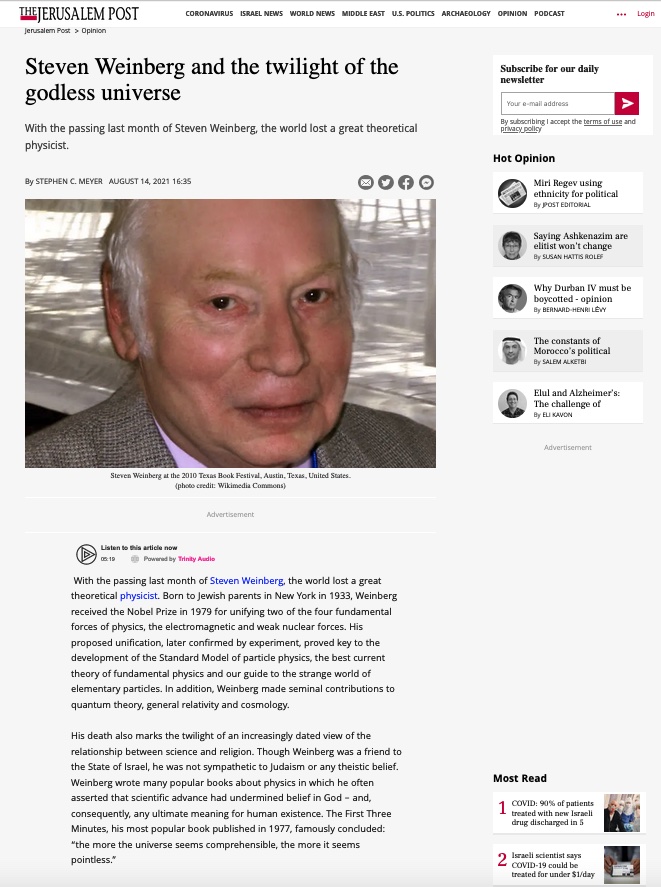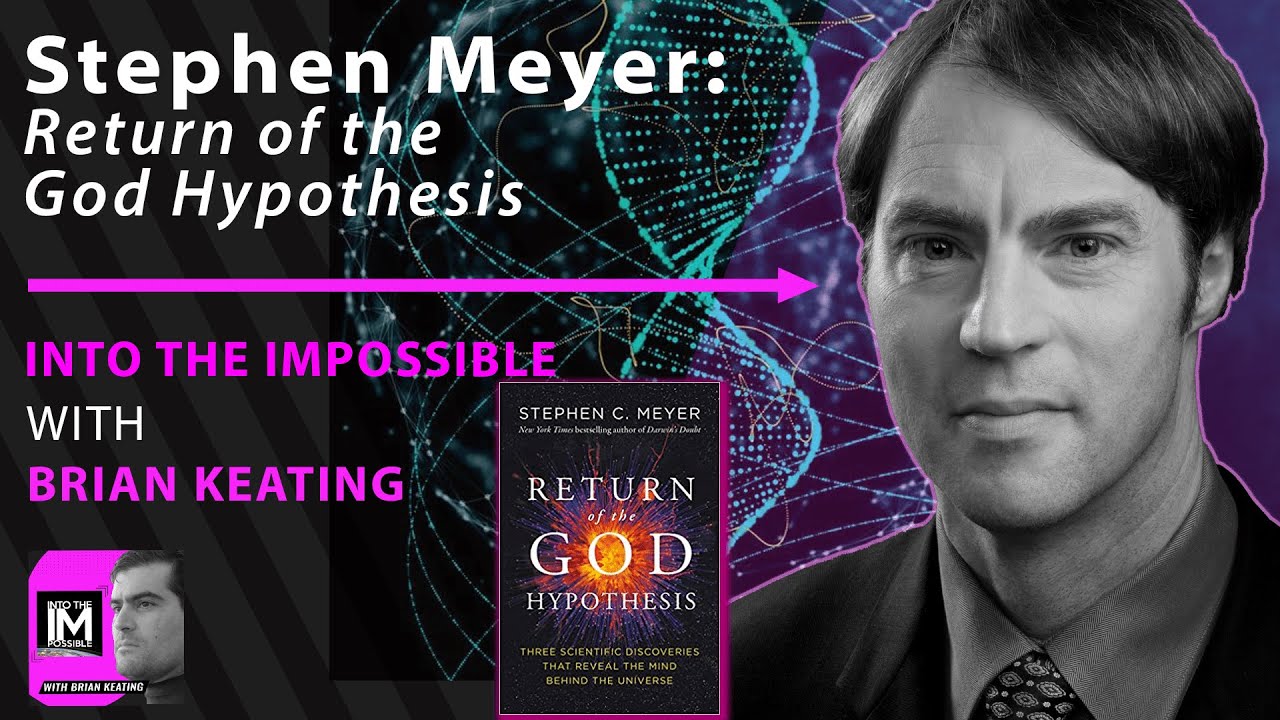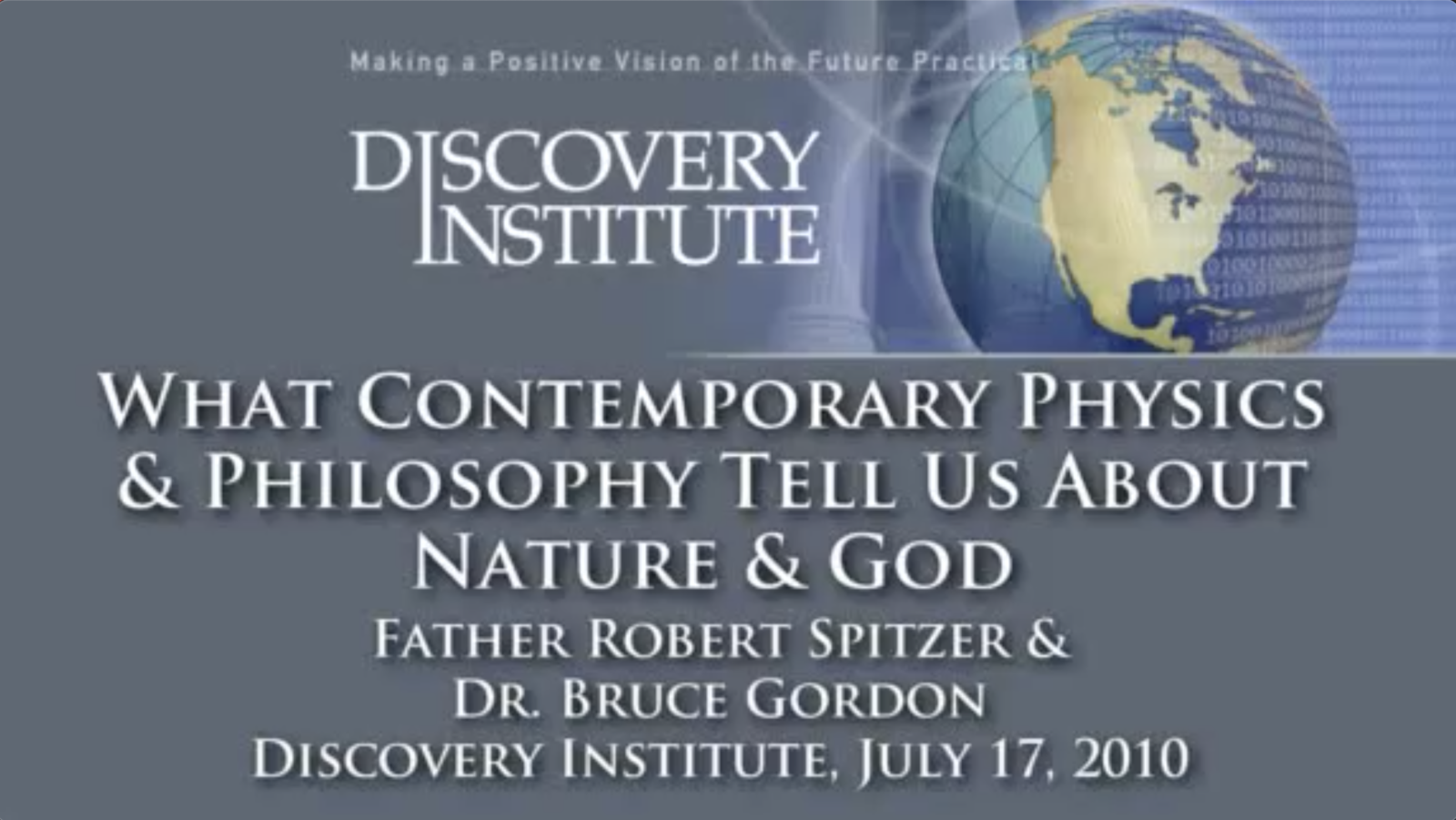
Steven Weinberg and the Twilight of the Godless Universe

With the passing last month of Steven Weinberg, the world lost a great theoretical physicist. Born to Jewish parents in New York in 1933, Weinberg received the Nobel Prize in 1979 for unifying two of the four fundamental forces of physics, the electromagnetic and weak nuclear forces. His proposed unification, later confirmed by experiment, proved key to the development of the Standard Model of particle physics, the best current theory of fundamental physics and our guide to the strange world of elementary particles. In addition, Weinberg made seminal contributions to quantum theory, general relativity and cosmology.
His death also marks the twilight of an increasingly dated view of the relationship between science and religion. Though Weinberg was a friend to the State of Israel, he was not sympathetic to Judaism or any theistic belief. Weinberg wrote many popular books about physics in which he often asserted that scientific advance had undermined belief in God – and, consequently, any ultimate meaning for human existence. The First Three Minutes, his most popular book published in 1977, famously concluded: “the more the universe seems comprehensible, the more it seems pointless.”
Weinberg’s aggressive science-based atheism now seems an increasingly spent force. Since 1977, Carl Sagan, Richard Dawkins, Stephen Hawking, Victor Stenger, Lawrence Krauss and many other scientists have published popular anti-theistic broadsides. Many of these stalwarts have since passed from the scene. Others have so overplayed their hands with overt attacks on religion that they have provoked even fellow atheists and agnostics to recoil.
Read More ›



